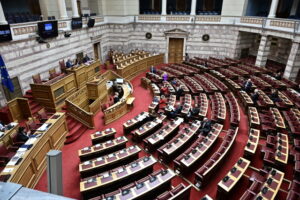Belgium’s Flemish Interest is making a major leap forward in the polls, as ratings of the right-wing party continue to soar following the 2019 federal election. If the trend continues, the party’s opponents may have to stop boycotting it.
Flemish Interest (Vlaams Belang, VB) managed to secure 18 seats out of 150 in the country’s Chamber of Representatives in May of 2019. The party emerged from the “Flemish Block” – a right-wing movement that was dissolved following a 2004 High Court ruling on the “permanent incitation to discrimination and racism”.
Since the early 2000s, VB has changed its rhetoric somewhat, abandoning some of the 70 goals that were originally in Flemish Block’s 1992 anti-immigration plan. Even though the party still stands by its anti-immigration agenda, the most controversial statements in the plan, such as “the return of the 2nd and 3rd generations of foreigners”, did not make it into Flemish Interest’s list of priorities.
Leaders who were associated with the Flemish Block before 2004, such as Filip Dewinter, either stepped down, while remaining honorary members of Flemish Interest, or became the new party’s representatives in EU institutions, which was the case with another party veteran, Gerolf Annemans.
By the fall of 2019, the party, led by 33-year-old Tom van Grieken, managed to become the largest political force in Flanders, with approval ratings of more than 27%.
One right-wing activist, whose name is associated with the party and whose popularity skyrocketed in 2019, is Dries van Langenhove – a 26-year-old independent politician who joined the “Flemish Interest” group in the Belgian parliament after securing a seat in the 26 May federal elections in the constituency of Flemish Brabant.
Van Langenhove is the founder of “Schield and Friends” – a controversial right-wing conservative Flemish youth movement from Ghent, which, according to Belgian mainstream media, was responsible for sharing sexist, racist, and anti-Semitic memes on the Internet.
According to Van Langenhove, who is a vocal critic of “leftist policies”, Flemish identity is under threat, and key issues for his country are globalization, mass immigration, and other trends that are favoured by the country’s current government:
“Anywhere you go you get the same shops, the same clothes, the same language – everything has to be the same because of globalisation”, Van Langenhove said in an interview with Sputnik. “I’m more in favour of local habits, everything local – local identity. It doesn’t mean, of course, that we can’t have a world where there is travel and trade all across the globe. But globalisation, and such, is a threat to local identity. But also, of course, a major threat, the biggest threat, is massive immigration coming from third world countries, coming from the Middle East – people who have no similarities with our culture at all. Most of them are impossible to integrate”.
Read more: sputnik
Ask me anything
Explore related questions





